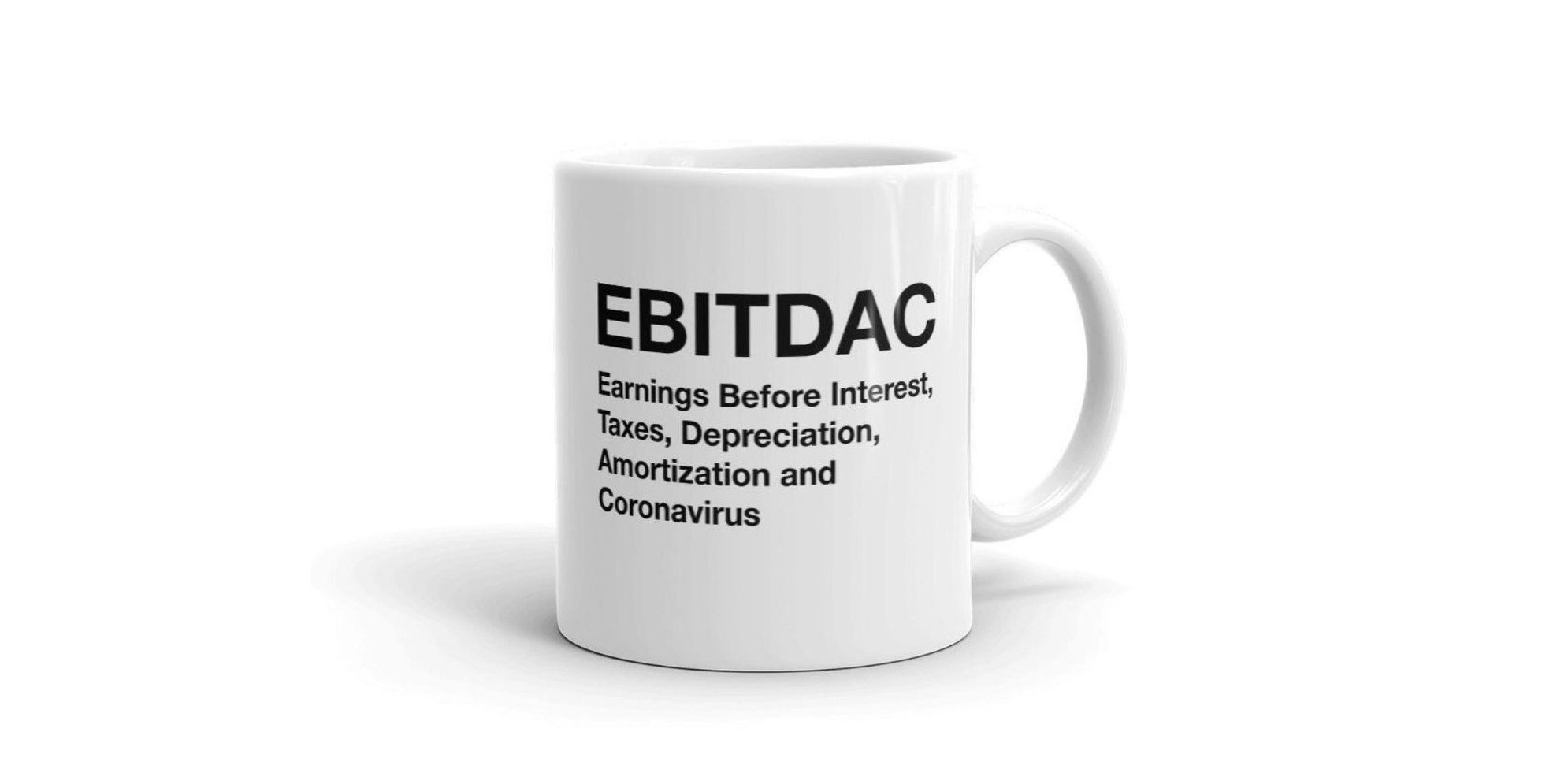EBITDAC Valuation Methods During the Covid-19 Age and What It Means for M&A
Many of you may have seen the coffee mug circulating on social media; EBITDAC, earnings before interest depreciation, amortization, and COVID-19! Brilliant, but also to a certain extent true. Increasingly we are seeing a change in valuation methods, where many potential sellers simply will not accept transactions based on their 2020 numbers, which were adversely affected due to the level of disruption.
Yet deals will still need to be done and perhaps more pressingly in economic slowdowns, where synergy and economies of scale driven by acquisitions become even more important. Therefore, we can see the EBITDAC ‘tag’ and ring-fencing the COVID-19 numbers may be appropriate, particularly in valuation methods for M&A. This is fair but there is, in fact, a broader question, why EBITDA in the first place?
EBITDA
Given there have been three pandemics in the last 102 years, with SARS a near-miss, it could be said another was inevitable. COVID-19 is, of course, a ‘game-changer’ as governments seek to protect lives and our healthcare systems, despite the economic costs. As virtualisation and technology support the challenges of social distancing, this has also made companies pause to consider what is truly essential for productivity. We will also see other impacts, for example perhaps data tracking of our locations. Consequently, there is no doubt that every business model is experiencing a game change in some way with the key to survival as we wrote in last weeks ‘Lead ahead building your strategy around productivity’.
The broader question, therefore, is should valuation methods be driven by the financial models such as EBITDA, or is the whole multiple of EBITDA valuation method flawed and actually, valuations should be measured by productivity and sustainability. To a certain extent, we already see this trend in SaaS valuation models, with profits being less relevant than growth margins, the market size, and recurring and retainable revenues. Why, therefore, is this not the sort of modelling being carried out in other sectors and valuations?
If COVID-19 is a game-changer when it comes to valuation methods, is it not the time to also change valuation methodologies and look beyond the numbers. Should key valuation methods be centered around the business capabilities including technology, automation, productivity per head, team track record, growth rate, retention rate of customers and brand recognition?
To be contentious, the EBITDA model is simply driven by a lack of imagination and risk management. No one in the finance world wants to say they made a value up or just ‘felt’ that it was the right deal looking at all the metrics. They feel they need a formula to follow and a justification to protect shareholders, but that doesn’t mean EBITDAC – adjusting for not just EBITDA but also the Covid-19 factor – is a difficult but necessary factor to consider.
When Pixar was acquired by Disney in 2006 for 7.4 billion against net income of just 30 million, many said Disney paid too much – but really the question was ‘how expensive would it have been for Disney if Pixar fell into someone else’s hands?’ In retrospect, the deal has proved enormously valuable with Disney’s overall stock rising. If you invested $10,000 in Disney 10 years ago, that investment would in February 2020 be worth $40,600.
In business valuations, it is a common yet mistaken statement that ‘you can’t pay for potential’. A buyer will argue that it has not yet been achieved, so it cannot be valued, whilst a seller will argue that the growth prospects will enhance yield. However, today with Covid-19 causing a poor performing period, this must be modelled aside.
EBITDAC
We may use historic profits to analyse yield, however, it is always the potential profits which are being purchased and paid for. In fact, the best deal structures take account of future trading and welcome a valuation in part based upon potential and capabilities. As leaders, we should be looking for deals that offer far more than their own isolated potential, and that’s where the EBITDAC valuation method would come in. In addition to the financial objective, what other strategic opportunities does the acquisition present?
Unfortunately, many leaders leave valuation methodologies to their finance analysts. A more beneficial approach would be for the financial analysts and business strategists to collaborate on their approach to identify a true reflection on valuation. M&A advisors tend to spend more time arguing about levels of working capital with buyers and sellers than helping them build truly world-class highly capable companies with competitive advantage, which is a real shame.
Avondale believe the game-changer for advisors is to raise their own game – to ring-fence financial performance due to COVID-19 and to focus on the growth and synergistic opportunities of tomorrow. Where all parties look past the recent EBITDAC financials, focus on the real value attributes of the business, and be creative with deal structure. There is little doubt this will result in a more successful acquisition and a more productive game.
For an exploratory discussion on anything M&A related – including EBITDAC – without obligation, please contact us on +44(0)20 7788 8250 or email av@avondale.co.uk.
We have launched our ‘Lead Ahead’ Webinar Series in line with our weekly articles. Watch our ‘EBITDAC: Business Valuations in the Covid Age’ video here.






